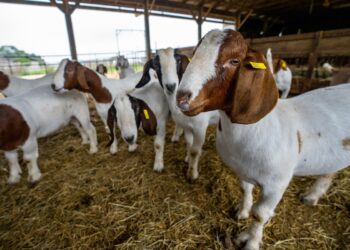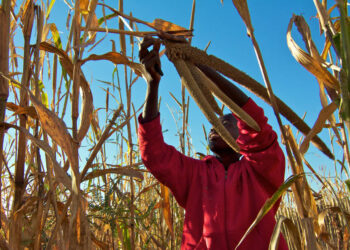
Rössing Uranium Limited (Rössing) significantly increased its local procurement in 2023, investing N$2.86 billion, a N$320-million increase from the 2022’s N$2.54 billion.
The local procurement accounts for 74% of the company’s total procurement spending. The company’s Managing Director Johan Coetzee highlighted the overall expenditure on goods and services, which reached N$3.88 billion in 2023 compared to N$3.42 billion the previous year.
“As in previous years, the bulk of Rössing’s procurement expenditure was directed towards Namibian suppliers. This strategic choice not only strengthens the local economy but also underscores Rössing’s commitment to fostering sustainable local partnerships,” Coetzee said.
Additionally, Rössing spent N$487 million with South African suppliers (12% of procurement) and N$531 million with international suppliers (14%).
Coetzee emphasised the company’s support for small and medium-sized enterprises (SMEs), saying “Rössing remains steadfast in our support for local SMEs and previously disadvantaged Namibiansâ€.
In 2023, the company spent N$140 million on goods and services from these groups, up from N$110 million in 2022.
Breaking down the Namibian spending, 41% was concentrated in the Erongo region, while 50% was in the Khomas region.
“The remaining 9% was distributed across other regions, with significant expenditure in the northern region due to a sulphuric acid supply agreement with Dundee Precious Metals in Tsumeb,” said the MD.
In 2023, 57% of Rössing’s Namibian spending came from suppliers with a majority of Namibian ownership, slightly down from 60% in 2022.
“86% of the total Namibian spend was with suppliers that employed 75% or more Namibians, a slight decrease from 88% in 2022. For expenditures under N$250,000, 67% of the N$594 million spent came from majority Namibian-owned suppliers, and 80% from suppliers employing predominantly Namibian workforces,” said Coetzee.
The Life of Mine Extension (LoME) from 2027 to 2036, approved in February 2023, includes a 13-year contract with Beifang Mining for full contract mining services from 2024 to 2036.
By the end of 2023, Beifang had mobilised a new fleet of heavy mining equipment, with the first blast in the new Phase 4 pushback occurring ahead of schedule on 21 December 2023.
Funds were also allocated for constructing a 15MWe PV solar power plant and expanding the tailings storage facility to accommodate ten additional years of tailings from Phase 4 ore processing.
Contracts for these projects were awarded by the end of 2023, with completion targets set for 2024 and 2025, respectively.
“Rössing is conducting feasibility studies on dewatering the tailings stream to higher density and onsite treatment of plant solutions to reduce freshwater consumption. These studies, involving pilot plants, aim to inform an investment decision for full-scale execution by the end of 2026,” Coetzee stated.
Looking ahead, Coetzee emphasised Rössing’s long-term strategy to identify new sources of ore and extend the life of the mine beyond 2036.
“2024 will be a pivotal year for Rössing Uranium as we undertake substantial pushback work for Phase 4 and explore new opportunities to extend our mine life,†he said.











